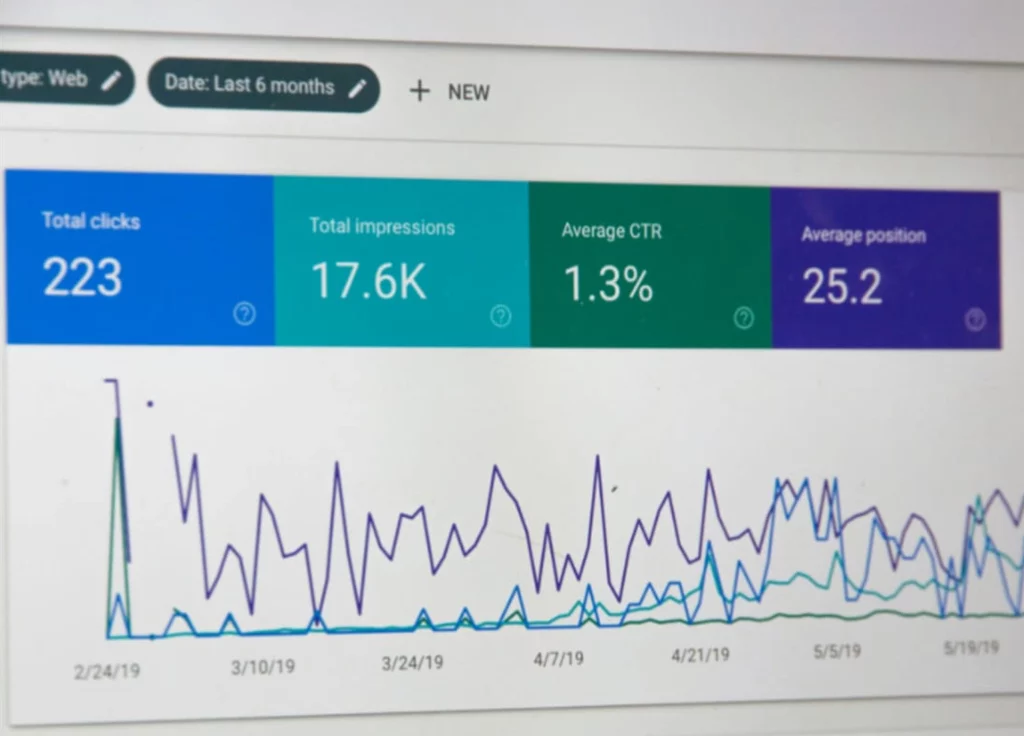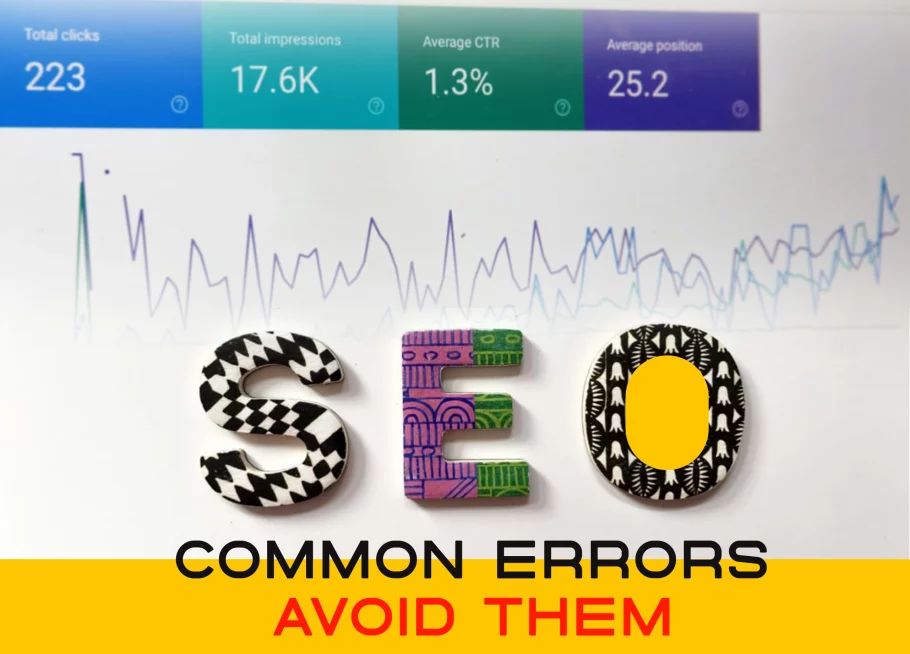Search Engine Optimization (SEO) represents a critical component in establishing an online presence. However, navigating the intricate realm of SEO can prove to be quite challenging. Regardless of your proficiency level, avoiding common mistakes is essential for achieving favorable page rankings. This article seeks to delve into prevalent errors and offer guidance on how to evade them.

1. Incorrect or Irrelevant Keywords: The Dangers of Following Trends
One of the most frequent mistakes in SEO involves the utilization of trendy or common keywords that bear no relevance to your website’s content. Although this approach may draw traffic, it often comprises users who lack interest in what your site offers. It is imperative to concentrate on incorporating genuine, pertinent keywords that attract genuinely interested potential clients to your site.
2. Excessive Keyword Use: The Risks of Keyword Overloading
Some individuals hold the misconception that saturating their content with keywords will elevate their page ranking. However, search engines have the capability to detect this practice, known as “spamming,” and may penalize your site by omitting it from the index. It is advisable to strive for a balanced use of keywords to maintain credibility and avoid being identified as spam.
3. Absence of Good or Relevant Content: The Fundamental Element of Quality
The content present on your site assumes a central role in retaining visitors. While keywords function to draw users in, it is the quality and relevance of your content that effectively maintain their engagement. It is crucial to devote time to develop valuable and pertinent content to ensure your site emerges as distinct among rivals offering comparable services or information.
4. Incorrect HTML Codes = HTML Errors: The Oversight of Technical Aspects
Even with superior content, HTML errors can negatively influence your site’s performance. Prior to submitting your site to search engine directories, it is essential to meticulously examine your HTML codes to rectify any issues. Resolving concerns like sluggish loading times and browser conflicts will enhance the user experience and advance your page ranking.
5. Excessive Use of Graphics: Balancing Aesthetic Appeal and SEO
Search engines accord priority to text during the indexing of sites, thereby overlooking graphics to some extent. The development of a graphics-heavy site may not contribute positively to SEO and could potentially result in a reduced page ranking. Striking a balance between visual appeal and SEO optimization necessitates prioritizing textual content over superfluous graphics.

6. Inadequate Mobile Optimization: Disregarding the Mobile User Base
In an era characterized by a dominance of mobile users, neglecting mobile optimization can prove to be detrimental. It is essential to ascertain that your site is responsive and user-friendly across multiple devices. Sites that are mobile-friendly receive preferential treatment from search engines, thereby positively influencing page rankings.
7. Disregarding Analytics: Understanding the Significance of Data Insights
A considerable number of SEO practitioners tend to overlook the significance of analytics. Regularly scrutinizing data provides valuable insights into user behavior, keyword performance monitoring, and areas necessitating improvement. Harnessing the power of analytics furnishes vital insights to refine your SEO strategy and enhance overall performance.
8. Neglecting Local SEO: Capitalizing on Nearby Opportunities
For businesses emphasizing a local focus, the neglect of local SEO equates to a squandered opportunity. It is advisable to optimize your site for local searches by incorporating location-specific keywords and establishing a Google My Business profile. Local SEO possesses the potential to significantly influence visibility within your aimed geographical region.
9. Slow Page Loading Speed: The Urgency of Swiftness
In the contemporary fast-paced digital landscape, users exhibit heightened demands for swift access to information. A site that loads slowly can lead to elevated bounce rates and a decline in search rankings. Optimizing images, leveraging browser caching, and investing in dependable hosting is crucial to ensuring that your site loads at a swift pace.
10. Ignoring Social Media Integration: Harnessing the Potential of Connectivity
Social media emerges as a potent tool for boosting your site’s visibility. The failure to integrate social media into your SEO strategy translates to missed opportunities for engagement, sharing, and link-building. Capitalizing on social platforms to widen your reach and augment your SEO endeavors is highly recommended.
11. Inadequate Quality Backlinks: Establishing Credibility
Quality backlinks secured from reputable sites contribute significantly to your site’s credibility. The mistake of prioritizing quantity over quality should be evaded. It is advisable to focus on obtaining backlinks from authoritative sources within your industry as they are more likely to positively impact your search rankings.
12. Inconsistent Content Updates: Emphasizing the Necessity of Freshness
Search engines exhibit a preference for regularly updated content. The neglect of updating your site with fresh and relevant information can result in a decline in rankings over time. Adhering to a consistent content updating schedule serves to signal to search engines that your site remains active and valuable.

13. Unoptimized Meta Descriptions: Mastering the Craft of Meta Tag Formation
The art of crafting captivating meta descriptions stands as an aspect often overlooked in SEO. The failure to optimize meta descriptions by integrating relevant keywords and engaging content might lead to missed opportunities in attracting clicks through search engine result pages (SERPs).
14. Underestimating Competitor Analysis: Staying Ahead of the Curve
A common oversight in SEO involves neglecting competitor analysis. Gaining an understanding of your competitors’ strategies, keywords, and content can provide valuable insights. Staying informed about industry trends and adjusting your approach ensures that you maintain a competitive edge.
15. Insufficient SEO Education: Adapting to the Ever-Evolving Environment
SEO represents a dynamic field characterized by continuous evolution. Failing to stay abreast of the latest trends, algorithms, and best practices can impede your SEO endeavors. Devoting time to ongoing education is crucial in adapting to changes and ensuring the effectiveness of your strategies.





